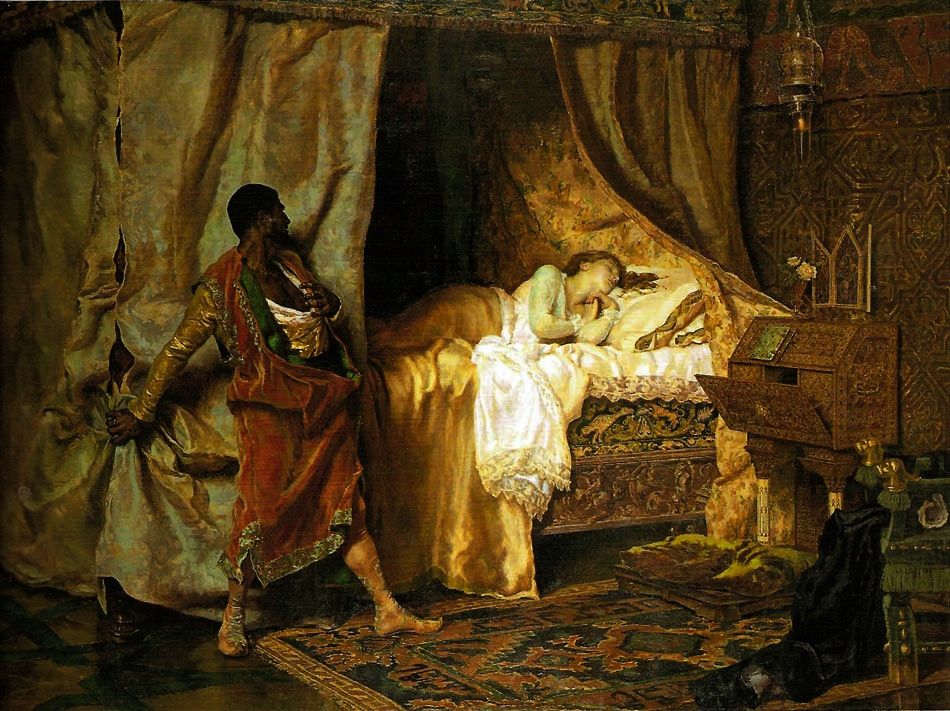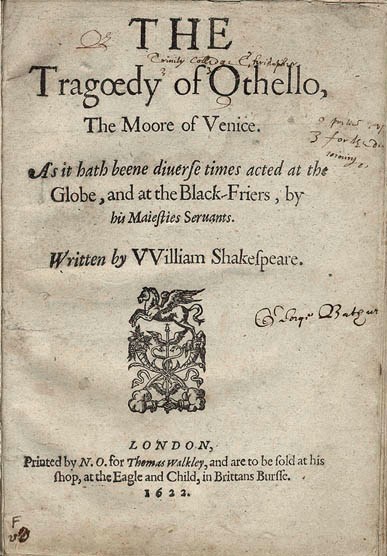Shakespeare, William, 1564-1616. Othello
Enlarge text Shrink text- His The tragedy of Othello, the Moor of Venice, 1982, c1966.
- His The tragedie of Othello, the Moore of Venice, 1956:
- The tragoedy of Othello, the Moore of Venice, c1995:
- His William Shakespeare's The tragedy of Othello, the Moor of Venice, 2003.
- روايتا امير صور وعطيل، 1925.
- رواية عطيل، 1912:
The Tragedy of Othello, the Moor of Venice, often shortened to Othello (), is a tragedy written by William Shakespeare around 1603. Set in Venice and Cyprus, the play depicts the Moorish military commander Othello as he is manipulated by his ensign, Iago, into suspecting his wife Desdemona of infidelity. Othello is widely considered one of Shakespeare's greatest works and is usually classified among his major tragedies alongside Macbeth, King Lear, and Hamlet. Unpublished in the author's life, the play survives in one quarto edition from 1622 and in the First Folio. Othello has been one of Shakespeare's most popular plays, both among playgoers and literary critics, since its first performance, spawning numerous stage, screen, and operatic adaptations. Among actors, the roles of Othello, Iago, Desdemona, and Emilia (Iago's wife) are regarded as highly demanding and desirable. Critical attention has focused on the nature of the play's tragedy, its unusual mechanics, its treatment of race, and on the motivations of Iago and his relationship to Othello. Originally performed by white actors in dark makeup, the role of Othello began to be played by black actors in the 19th century. Shakespeare's major source for the play was a novella by Cinthio, the plot of which Shakespeare borrowed and reworked substantially. Though not among Shakespeare's longest plays, it contains two of his four longest roles in Othello and Iago.
Read more on Wikipedia >
 Title
Title










